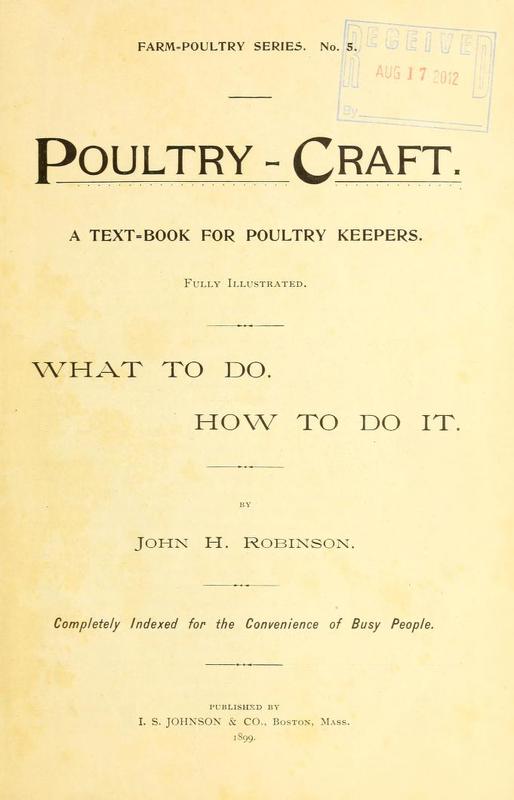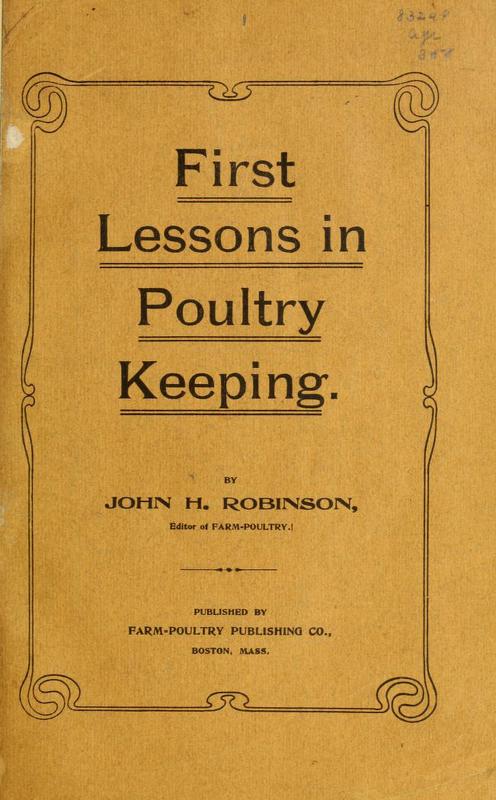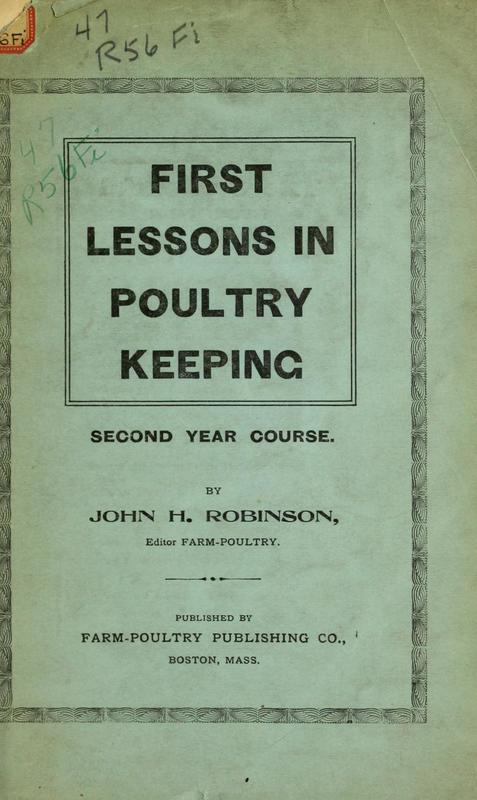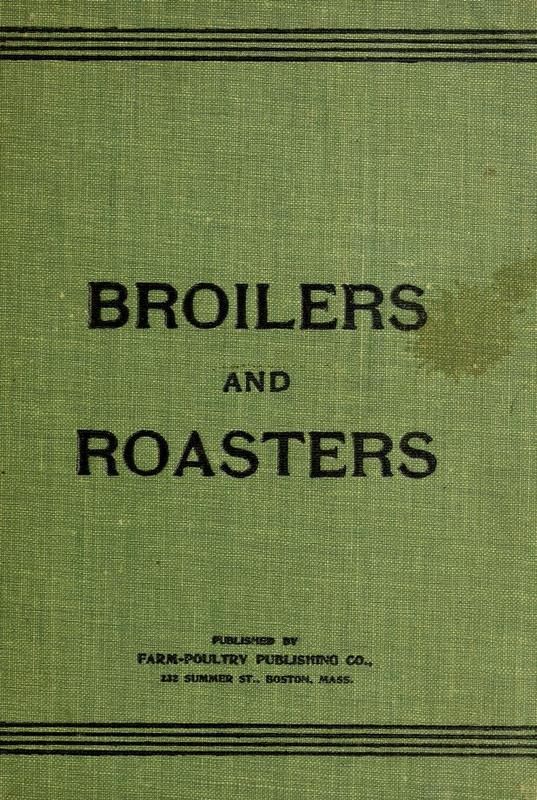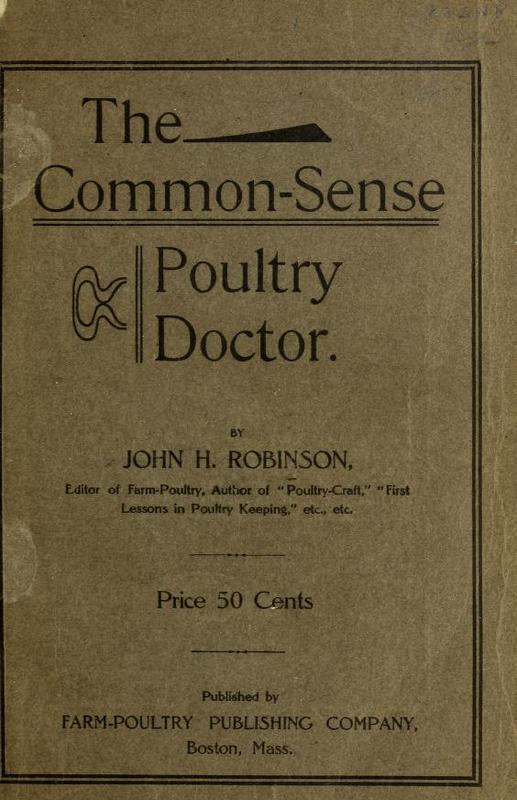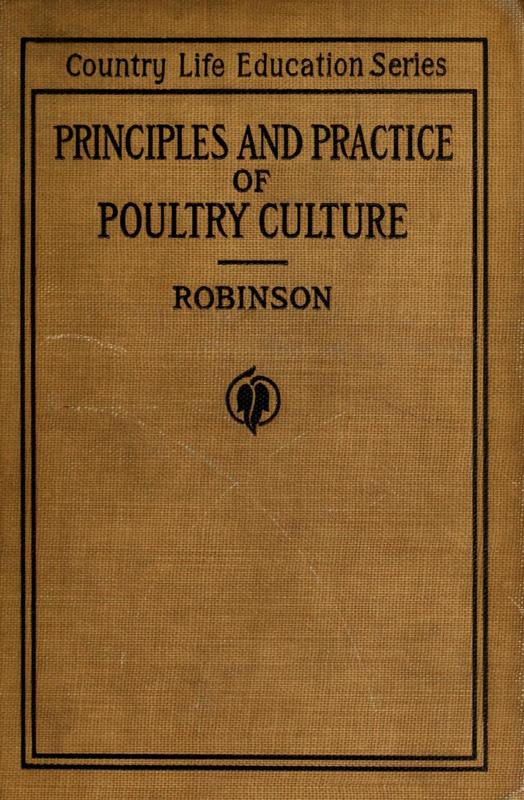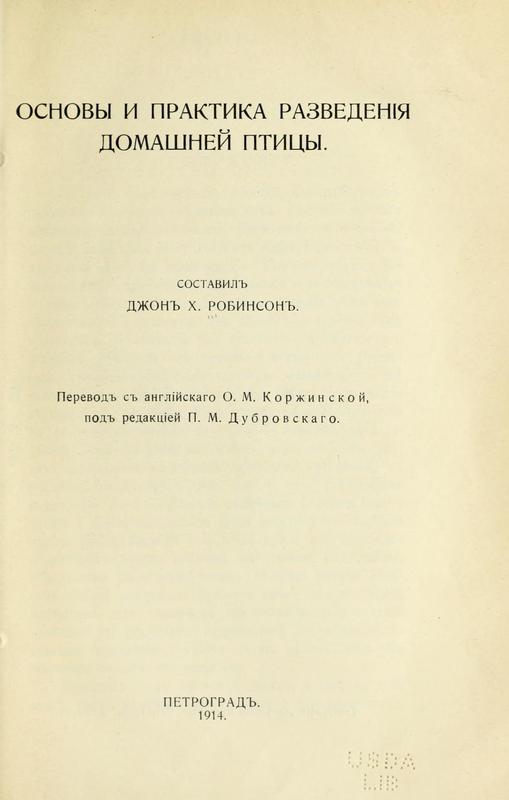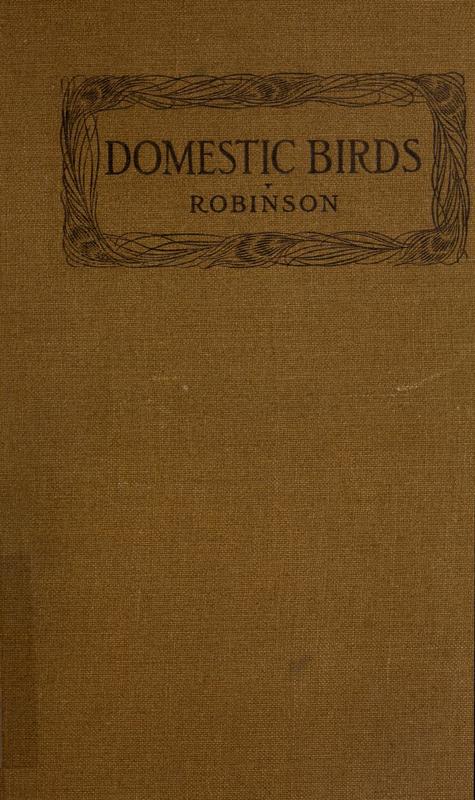John Robinson on Poultry Farming
Portrait of John Henry Robinson, Editor of Farm-Poultry
John Robinson (1863 - 1935) was a prolific writer in the poultry field at the same time that Frost was working in Derry. Robinson was the editor of The Farm-Poultry when Frost approached the journal through a mail inquiry proposing some "articles a little out of the usual line, but with instructive ideas in them" (Robert Frost: Farm-Poultryman. Robert Frost. Edited by Edward Connery Lathem and Lawrance Thompson. Dartmouth Publications, 1963, page 13). After his submission was rejected by Robinson Frost got two articles published in a rival publication, The Eastern Poultryman.
Robinson later reversed his decision and published one of these pieces, "A Just Judge," and nine others. In the issue of The Farm-Poultry which contains "The Question of a Feather," (Volume 14, Number 14, July 15, 1903) Robinson explains his reversal:
By way of giving readers a little light reading for warm weather we present in this issue a bit of fiction, which we imagine many will find as entertaining as we have. A little while ago we reprinted an entertaining little story by the same author which first appeared in the Eastern Poultryman.
Thereby hangs a tale of some interest to those who have MSS. [manuscripts] to offer poultry editors. Some time before Mr. F. wrote us offering articles a little out of the usual line, but with instructive ideas in them. We are always ready to investigate anything offering possibilities of good copy, so we wrote him to send us an article for examination. He did so, and we didn't like it a bit; sent it back. Then picking up a copy of the Eastern Poultryman, we came across what to us was a very interesting story in a style somewhat familiar. We couldn't place it at first, but later recalled that the initials were those of that correspondent whose story weighted with information had been returned. So we wrote him if the story in the Eastern Poultryman was his to send us what plain stories he had, and we would make him an offer for any we could use. From the stories sent we selected three, the one appearing in this issue, and two others which will come at intervals during the summer.
Moral: It is sometimes better to let an editor see all your articles than to send him only those you think ought to suit his paper. -- John Robinson, Editorial Notes, page 309
Robinson later assumed ownership of The Farm-Poultry and became its editor and manager. The following items are some monographs Robinson wrote about poultry farming.
Poultry-Craft: A Textbook for Poultry Keepers. What To Do. How To Do It. Completely Indexed for the Convenience of Busy People
Robinson, John Henry, 1899
"For those who want to know about poultry keepings for those who wish to learn poultry keeping and for poultry keepers who cannot always remember things they know at the moment they happen to need them, this book was written: to the small army of writers of permanent and current poultry literature nearly every one of whom has in some way contributed to its makings it is respectfully dedicated.
The growing interest in fine fowls and the widening of the field of profitable operations in poultry culture have created a demand for a book which will give to one who thinks of engaging in poultry keeping an intelligent understanding of its possibilities and probabilities, whether for pleasure or profit, and a comprehensive idea of the ways and means of production and distribution of this country's enormous crops of poultry and eggs."
Poultry-Craft: A Textbook for Poultry Keepers. What To Do. How To Do It. Completely Indexed for the Convenience of Busy People
Robinson, John Henry, 1904
"For those who want to know about poultry keeping, for those who wish to learn poultry keeping, and for poultry keepers who cannot always remember things they know at the moment they happen to need them, this book was written: to the small army of writers of permanent and current poultry literature, nearly every one of whom has in some way contributed to its making, it is respectfully dedicated.
The growing interest in fine fowls and the widening of the field of profitable operations in poultry culture have created a demand for a book which will give to one who thinks of engaging in poultry keeping an intelligent understanding of its possibilities and probabilities, whether for pleasure or profit, and a comprehensive idea of the ways and means of production and distribution of this country's enormous crops of poultry and eggs. Following this demand comes another, for a book of elementary instruction in all branches of poultry keeping."
First Lessons in Poultry Keeping: First Year Course
Robinson, John Henry, 1905
"Before taking up the regular work of this course every reader who intends to follow it through the year should consider carefully a few propositions about poultry keeping. These may not be in accordance with some ideas about it which he has absorbed, he knows not where; but if he is to get much benefit from these lessons he must accept them, at least provisionally, and pursue his study and carry on his work on the assumption that they are correct."
First Lessons in Poultry Keeping: Second Year Course
Robinson, John Henry, 1906
"This series originally appeared in Farm-Poultry serially in 1905-06. The third year course series is now running in that paper."
Broilers and Roasters : The Specialties of the Market Poultryman
Robinson, John Henry, 1905
"Why Only Broilers and Roasters are Considered.
This book will treat especially, and almost exclusively, of broilers and roasters because these are the two classes of market poultry in which one making a specialty of growing poultry (chickens) for market is interested. It might be said that broilers and roasters are the only chickens grown for market by specialists, for the business poultry keeper, whatever branches he follows, tries to work his surplus young stock into one or the other of these two channels of trade, while the entire product of "fowls," as old hens are classed on the market, may be said to be a by-product of egg farming, the hen, as a rule, not going to market until her owner feels that her days of profitable laying are over."
The Common-Sense Poultry Doctor
Robinson, John Henry, 1907
"Of books and booklets on poultry diseases there are in the English language possibly a score — not including pamphlets or circulars distributed to advertise remedies. Besides, nearly every general work on poultry contains a chapter on poultry diseases.
Of works on poultry diseases a goodly proportion are by men who may be considered specialists, professionals. They are doctors of veterinary surgery, or regular medical practitioners whose interest in poultry naturally led them into the investigation of poultry diseases.
Why, then, another book on poultry diseases, and by an author without medical education and training?"
Principles and Practice of Poultry Culture
Robinson, John Henry, 1912
"The method of treatment adopted in this book is the simple, scientific method, — that of presenting essential facts in logical order. The following of this method has led to some departures from the conventional way of presenting poultry topics. The unity of the poultry group is here conceived as essential and arising from the nature of the birds, rather than as artificial and relating to the purposes for which they are used; and I have tried to give practical effect to my very strong conviction that permanent poultry culture must be a feature in permanent agriculture, and that each of the common kinds of poultry has its peculiar place in agriculture. Hence the methods of managing the different kinds of poultry are not stated separately, as has been usual, but topics are discussed in their own appropriate order with reference to all the kinds."
Основы и практической работы в разведение домашней птицы. Basics and Practical Work in Poultry Rearing (Title translated from cover). Principles and Practice of Poultry Culture (original title for English-language edition)
Robinson, John Henry, 1914
"Метод лечения в этой книге в простой, научный метод, - представления основных фактов в логическом порядке. В этот метод привел к некоторые отступления от обычного способа представления птицы темы. единства птицы группы является здесь задумана в качестве основного, и, вытекающие из характера птиц, а не в качестве искусственного и в связи с целями, для которых они используются; и я попытался дать практические последствия для моей очень твердую убежденность в том, что постоянный птицы культура должна быть функция в развитие сельского хозяйства, и что в каждом из общих видов птицы имеет свои особые место в сельском хозяйстве. Поэтому методы организации управления различных видов домашней птицы не указано отдельно, как обычно, но темы рассматриваются в их собственных соответствующий приказ в отношении всех видов. Это подчеркивает, что вещи, которые применяются для всех видов домашней птицы, и позволяет легко показать, что надлежащей практики - это простой и что такое же отношение, как правило ответ, в целом или в части, в нескольких различных видов, тем самым освещением работы птицы keeper. Считается также, что в этой договоренности по этому вопросу студент или устройство чтения карт памяти, с инструкцией в подробная информация о методах, более всеобъемлющий подход к этому вопросу в целом, нежели обычный режим ее представления."
Our Domestic Birds: A Popular Primer of Aviculture
Robinson, John Henry, 1924
 An official website of the United States government.
An official website of the United States government.




